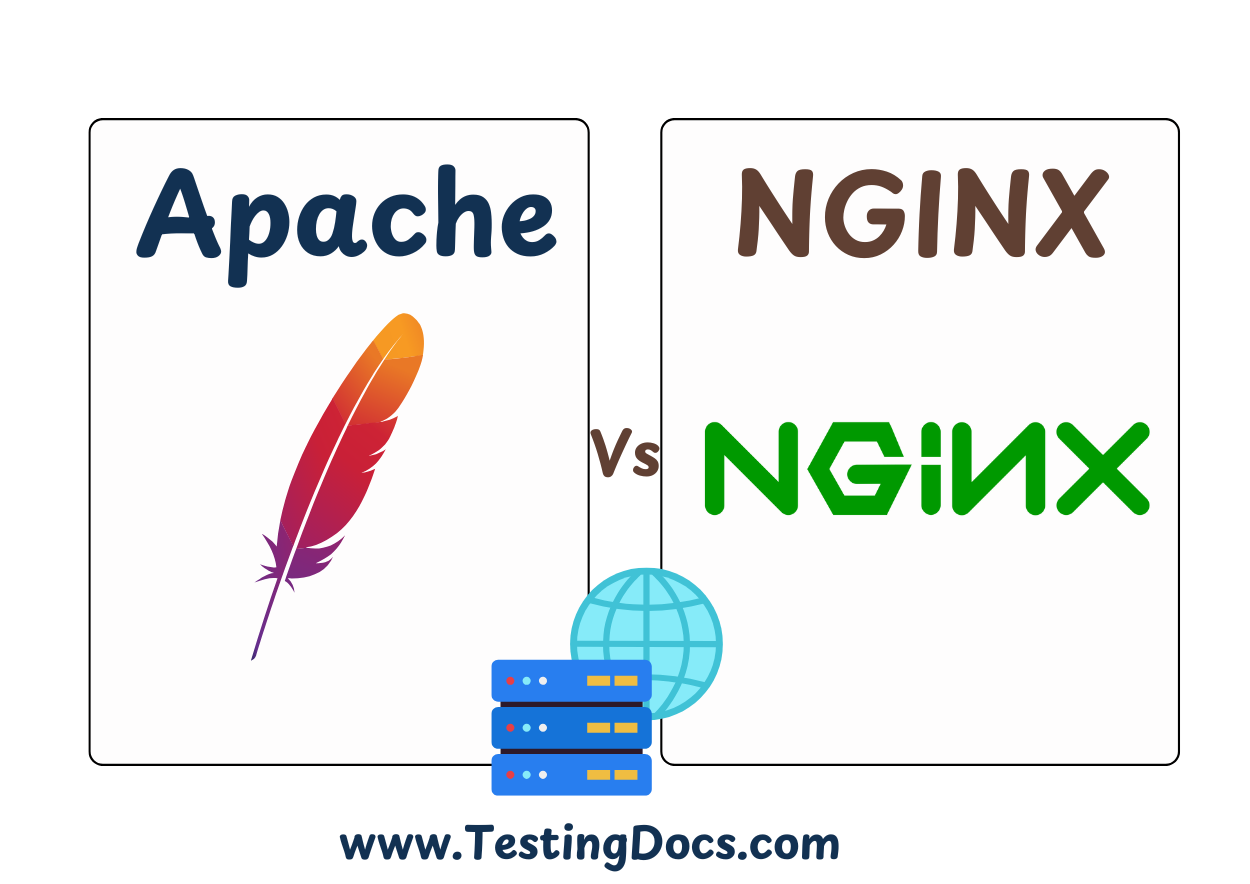Differences Between Apache and Nginx
Differences Between Apache and Nginx
Apache HTTP Server
Apache is an open-source, process-driven web server developed and maintained by the Apache Software Foundation. It uses a modular architecture, allowing users to enable or disable features as needed. Apache is widely used and supports multiple operating systems.
Nginx
Nginx (pronounced “engine-x”) is an open-source, event-driven web server designed for high-performance and scalability. It is known for handling a large number of concurrent connections efficiently with low resource consumption.

Apache vs. Nginx
| Feature | Apache | Nginx |
|---|---|---|
| Architecture | Process-driven (creates a new thread for each request) | Event-driven (handles multiple requests in a single thread) |
| Performance | Slower for high concurrent connections due to thread-based handling | Faster and more efficient in handling concurrent connections |
| Static Content Handling | Processes static content well but slower than Nginx | Excellent for serving static content with high efficiency |
| Dynamic Content Handling | Handles dynamic content internally (via modules like PHP) | Requires an external service (e.g., PHP-FPM) for dynamic content |
| Configuration | More flexible but complex | Simpler and more structured |
| Reverse Proxy | Can act as a reverse proxy but not as optimized as Nginx | Designed as a reverse proxy with excellent load balancing capabilities |
| Memory Consumption | Higher memory usage due to multiple processes/threads | Lower memory footprint due to event-driven architecture |
| Operating System Support | Works on all major OS (Windows, Linux, macOS) | Primarily optimized for Linux but supports Windows with limitations |
| Best Use Case | Best for websites requiring .htaccess configurations and heavy dynamic content | Best for handling static content, high-traffic websites, and reverse proxying |
Conclusion
- Apache is best for environments that require extensive module support, .htaccess configurations, and internal dynamic content processing.
- Nginx is ideal for high-performance, high-traffic websites and is commonly used as a reverse proxy or load balancer.
